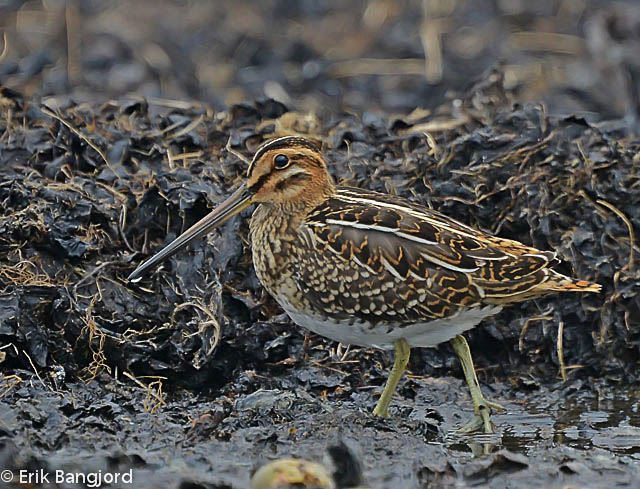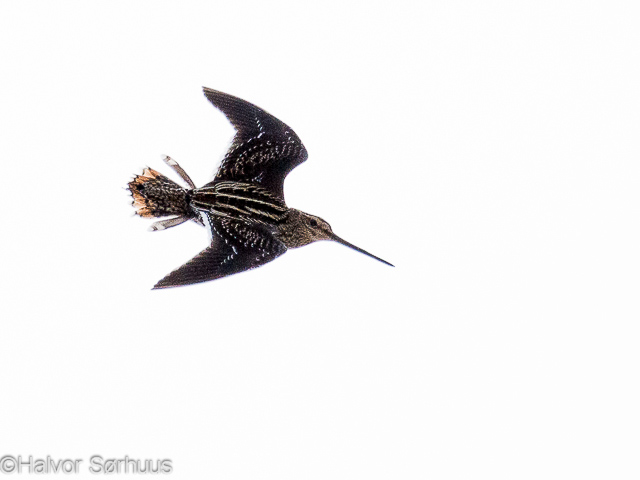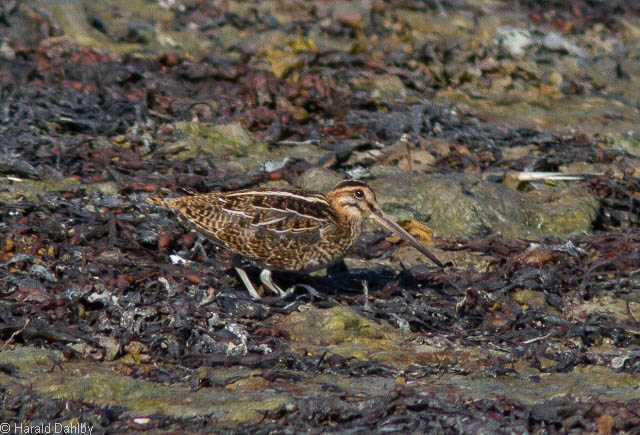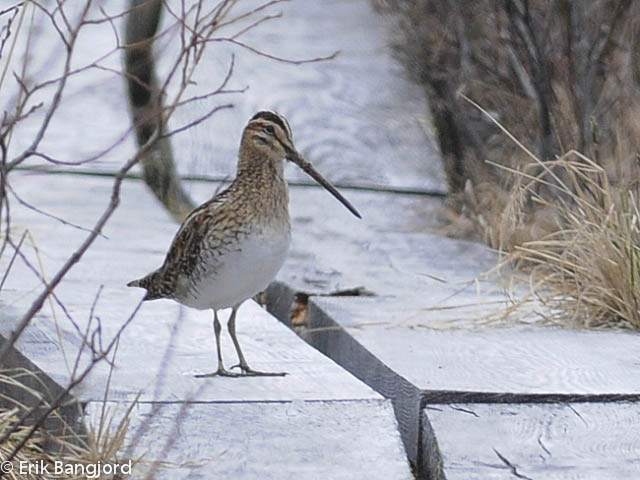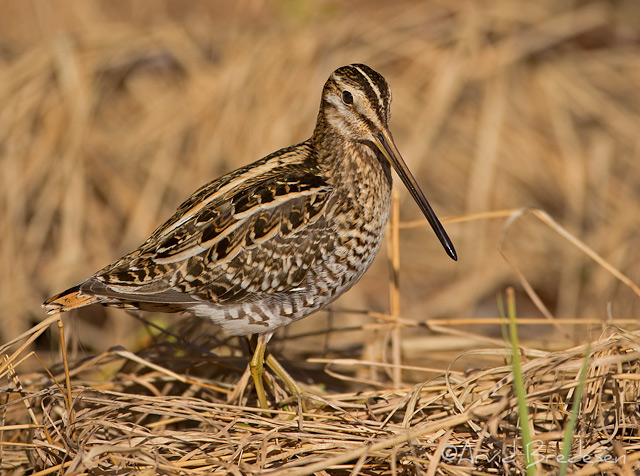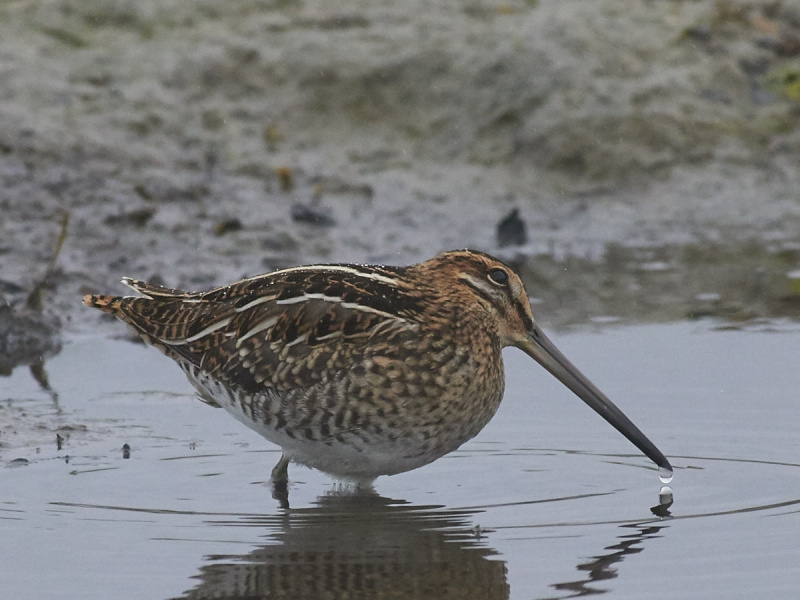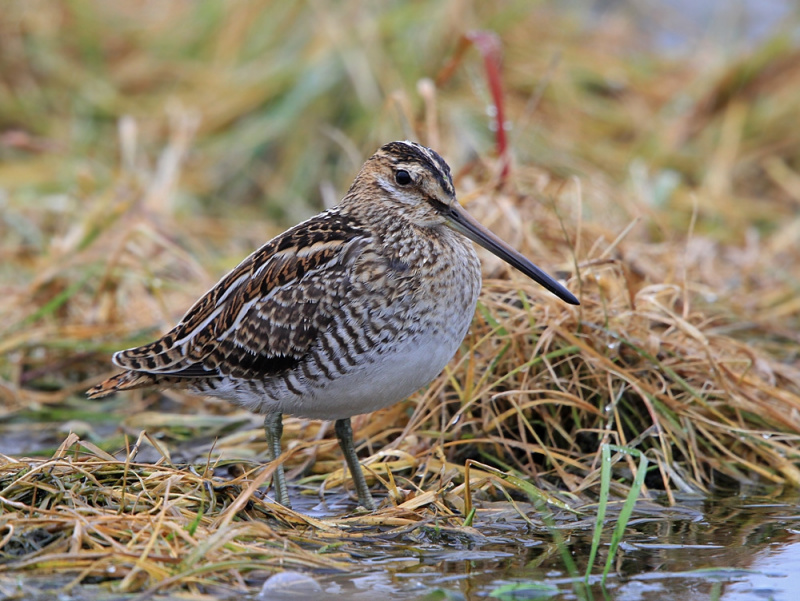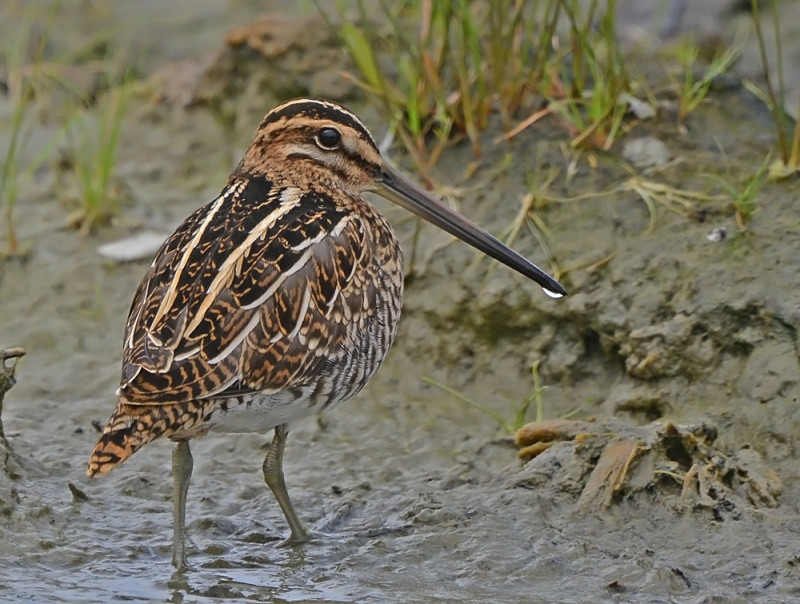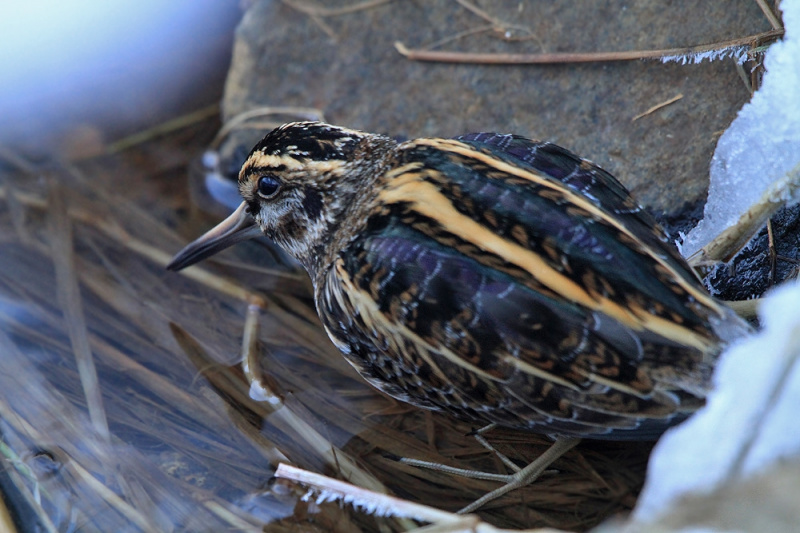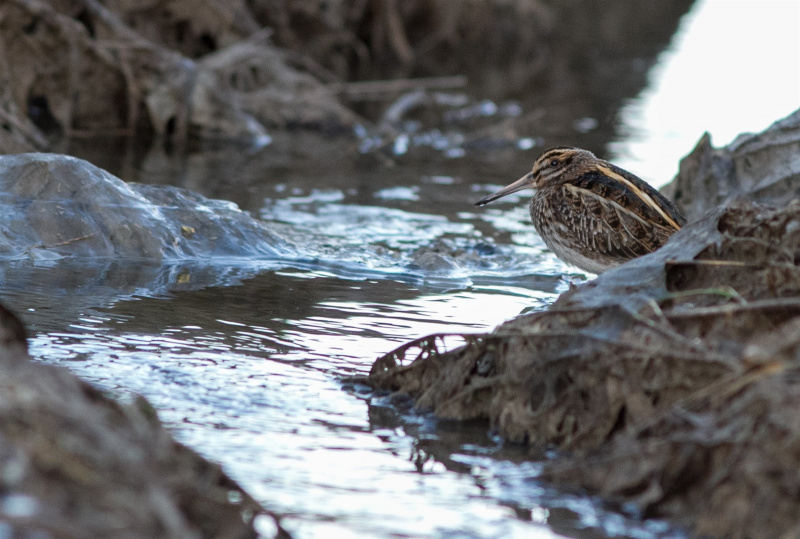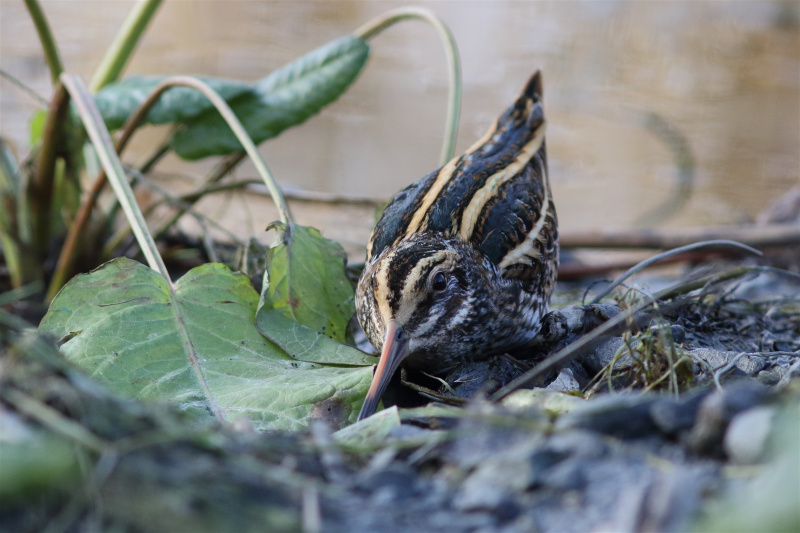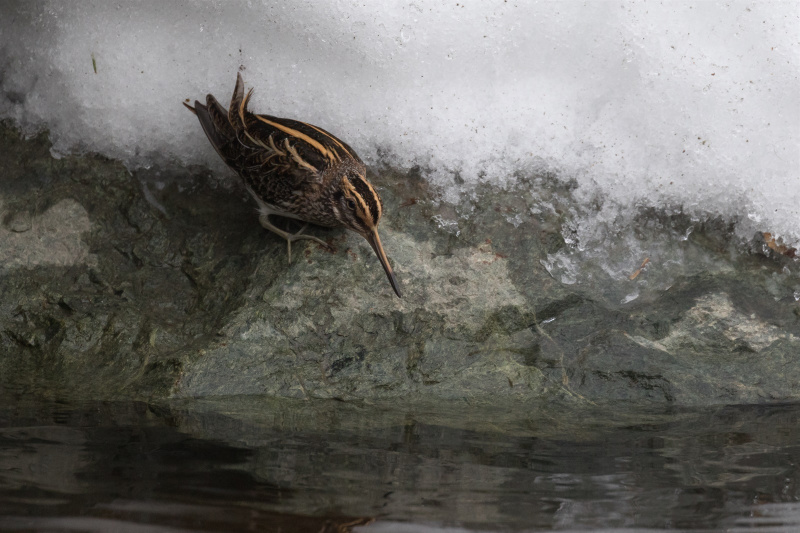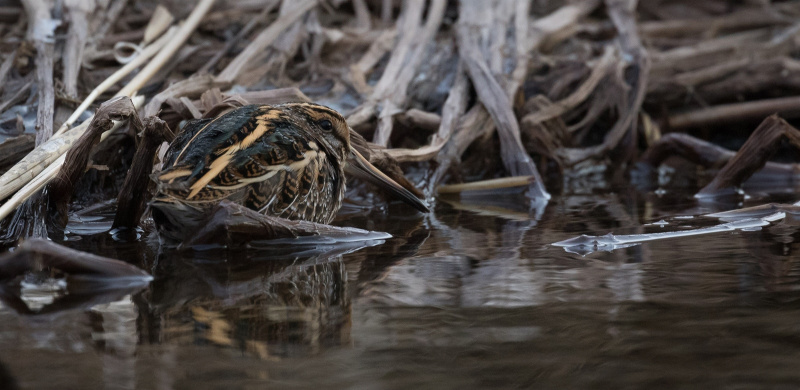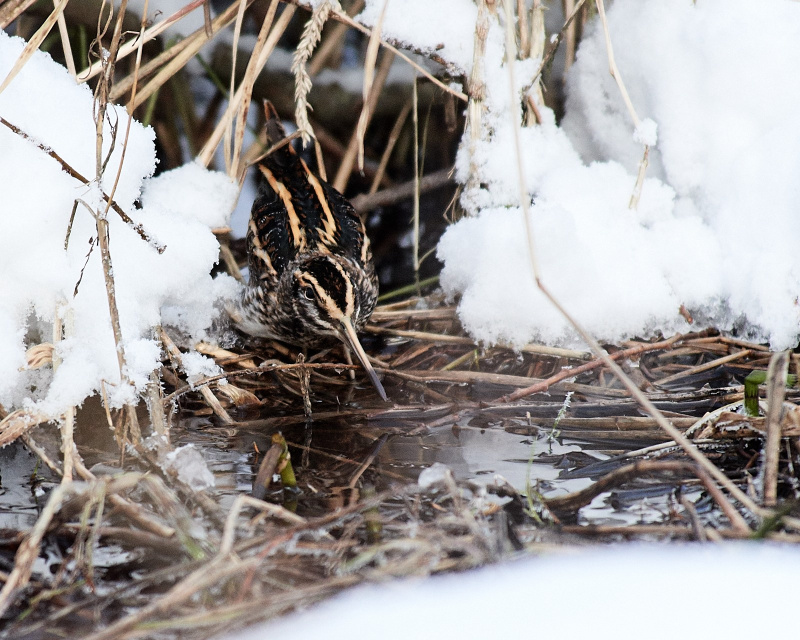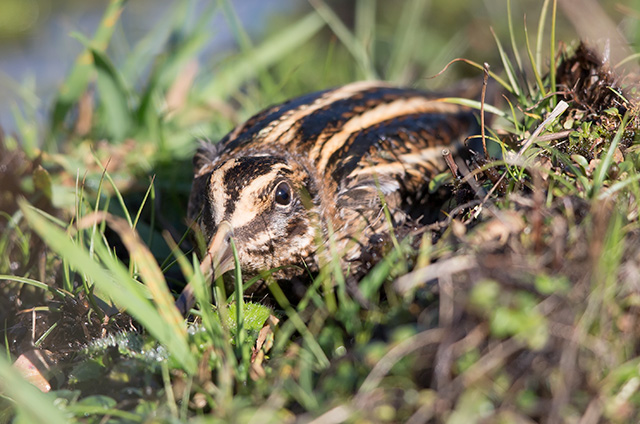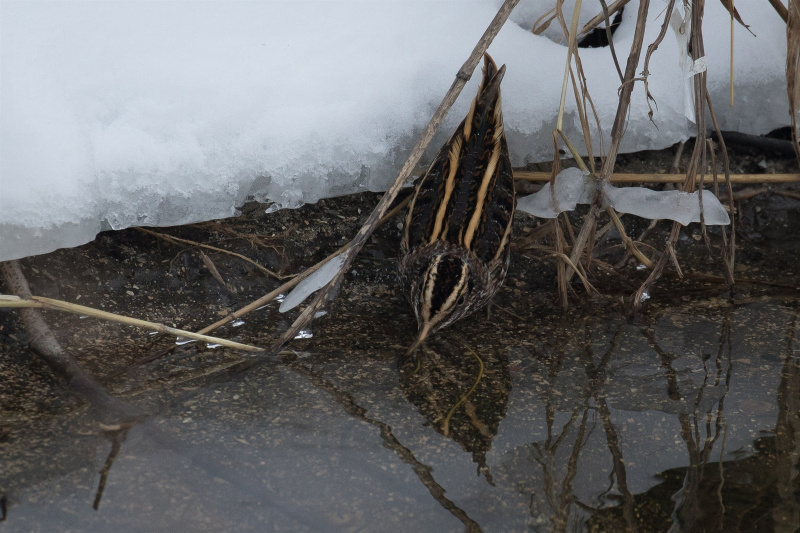Snipe (Gallinago gallinago)
Jack Snipe (Lymnocryptes minimus)
By far the most common snipe in most areas. Bill longer than congeners. Belly white, in contrast to barred flanks. Upperparts of wings with white trailing edge, underparts with white wingbars. Diagnostic escape flight when flushed, with zig-zag change of direction, characteristic call and long period of circling the area before landing (or leaving altogether).
Sound:Quite vocal, especially at breeding ground. Almost always give diagnostic hoarse and nasal "kaaat" call when flushed. Song an unmistakable bleating, drumming sound produced by vibrating tail feathers in sky-dives. Another territorial call is a rhythmic, mechanical and sharp "tika-tika-tka", or "ika-ka-ka".
Display, flush:
Distribution:
Wikipedia: map (se also Xeno-canto below)
Ecology:Birdlife ecology
Links:
Observation.org Latest observations
Image search Flickr NB! May give other species
CCNotably smaller, darker and with shorter bill than Common Snipe. Two prominent yellowish back-stripes. Dark wedge-shaped tail, and slightly rounded wings. Lacks median crown-stripe. Flanks spotted, not barred. Diagnostic behaviour: Usually flushed only at close range. Takes off silently, then quickly lands nearby. Whole body bounces rhythmically when feeding.
Sound:May occasionally give a harsh, nasal and rolling "reearrr" when flushed, but is usually silent. Display call a peculiar, cyclic and rhythmic sound performed in flight. Recalling a galloping horse in the distance. "Galloping" interspersed with cyclic, whistling, hissing sounds. Hard to locate when displaying. Seems both close and distant at the same time.
Song:
Distribution:
Xeno-canto: map
Ecology:Birdlife ecology
Links:
Observation.org Latest observations
Image search Flickr NB! May give other species
CCCC-photo:nhtbzk, Licence,Link,

 English
English Albanian
Albanian
 Armenian
Armenian
 Bulgarian
Bulgarian
 Catalan
Catalan
 Croatian
Croatian
 Czech
Czech
 Danish
Danish
 Dutch
Dutch
 Finnish
Finnish
 French
French
 Georgian
Georgian
 German
German
 Greek
Greek
 Hungarian
Hungarian
 Italian
Italian
 Latvian
Latvian
 Lithuanian
Lithuanian
 Macedonian
Macedonian
 Norwegian
Norwegian
 Polish
Polish
 Portuguese
Portuguese
 Romanian
Romanian
 Russian
Russian
 Sami : Lule sami
Sami : Lule sami
 Sami : North sami
Sami : North sami
 Sami : South sami
Sami : South sami
 Scientific names
Scientific names
 Serbian
Serbian
 Spanish
Spanish
 Swedish
Swedish
 Ukrainian
Ukrainian

